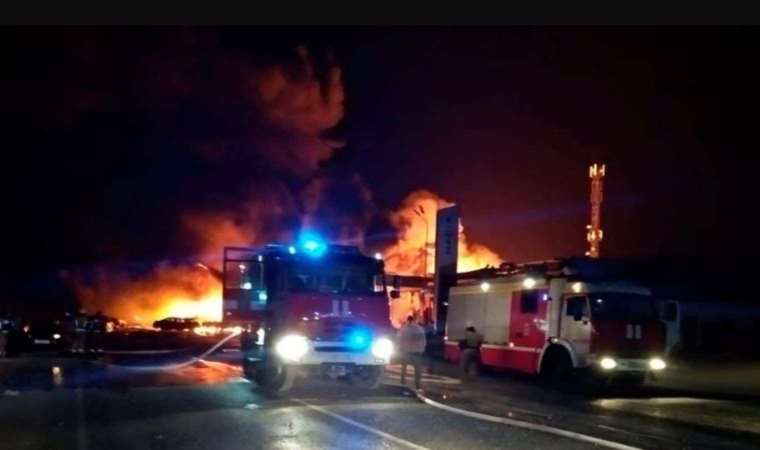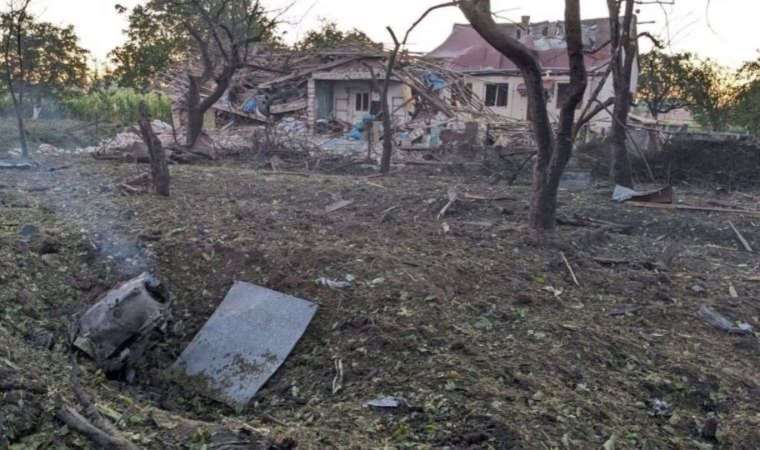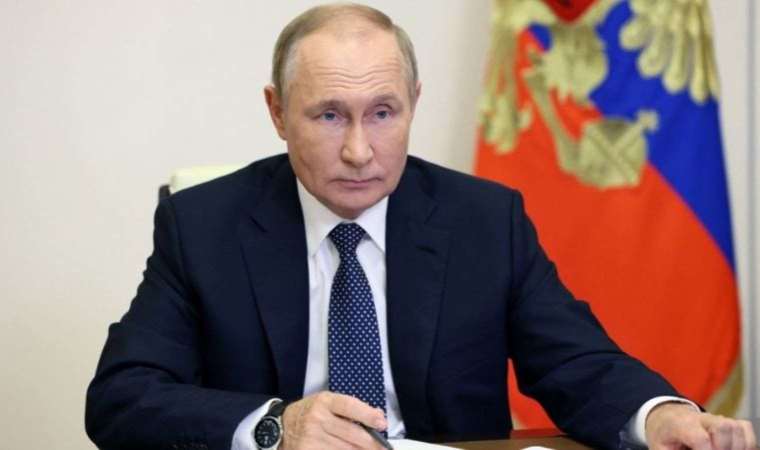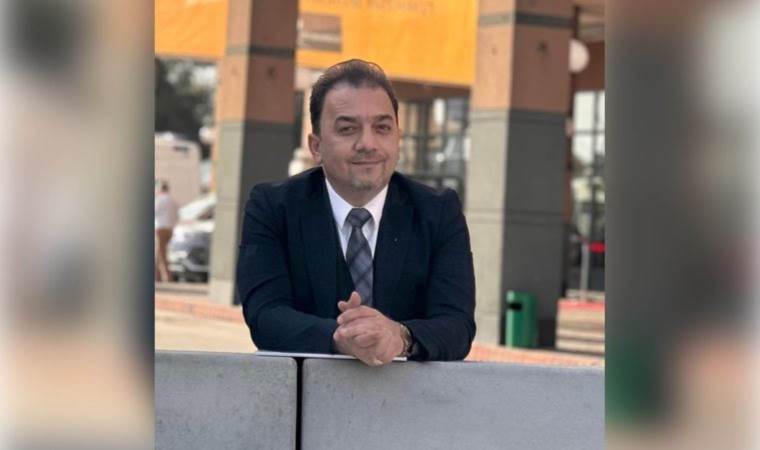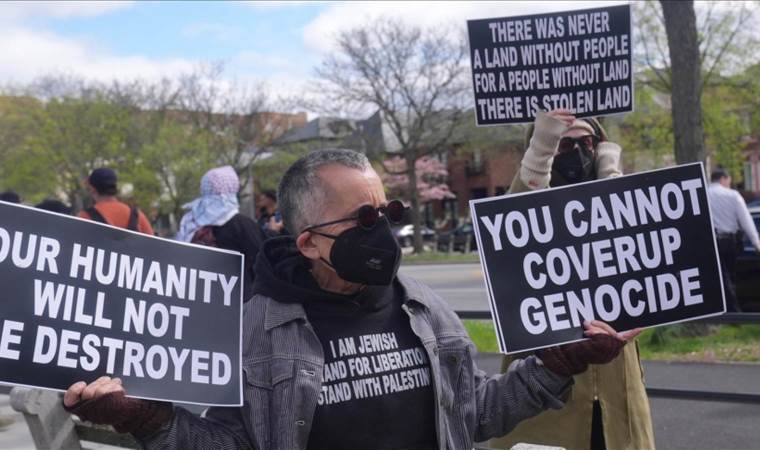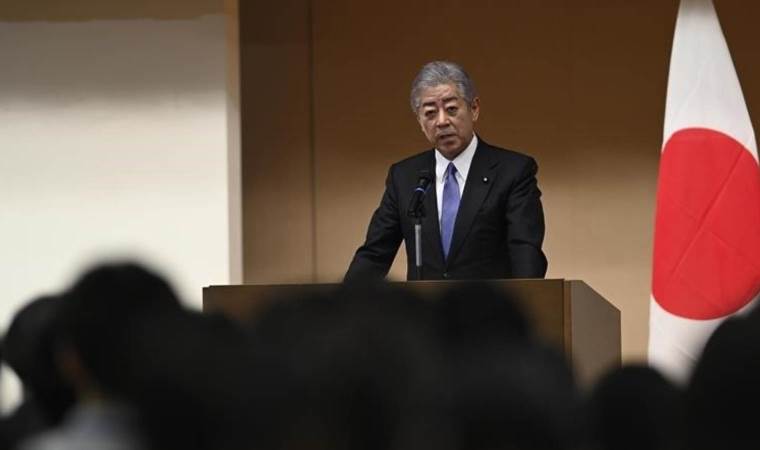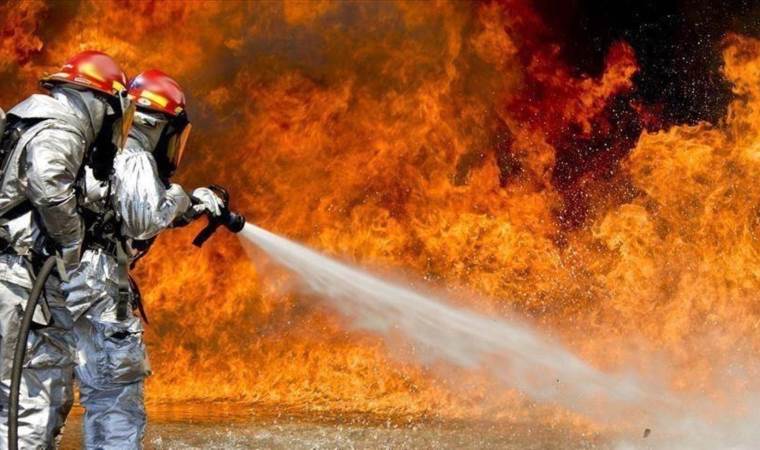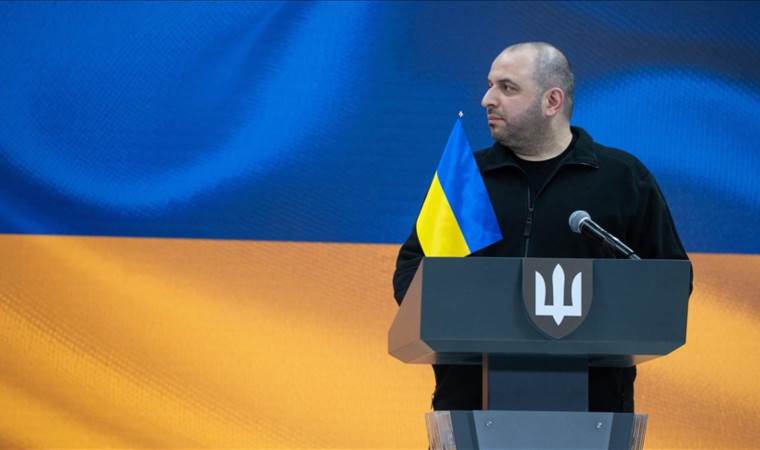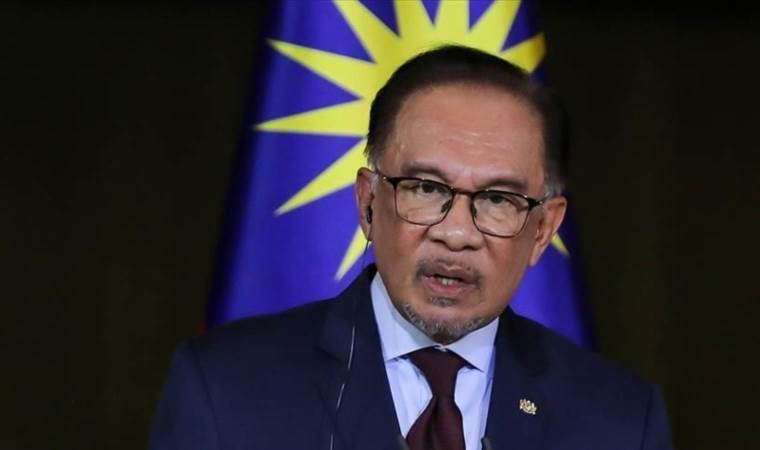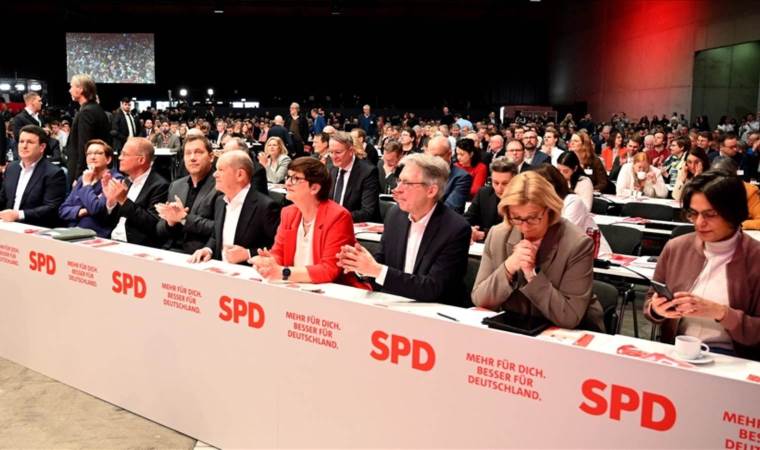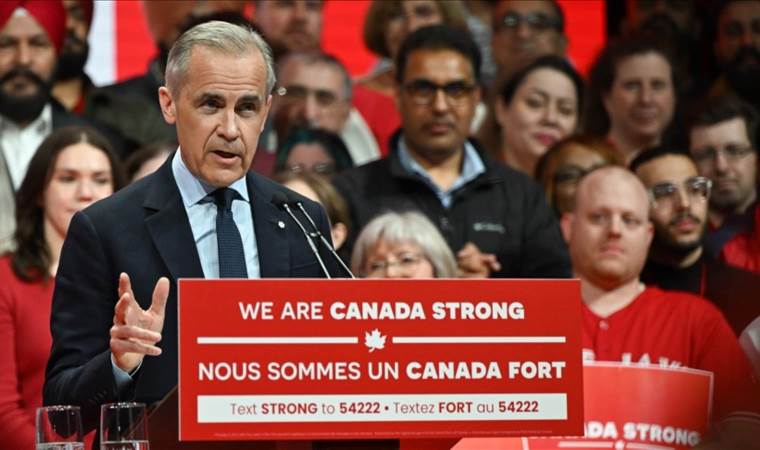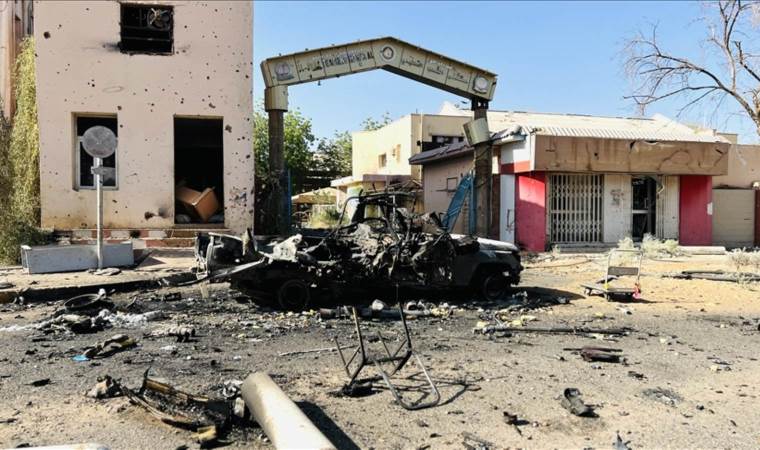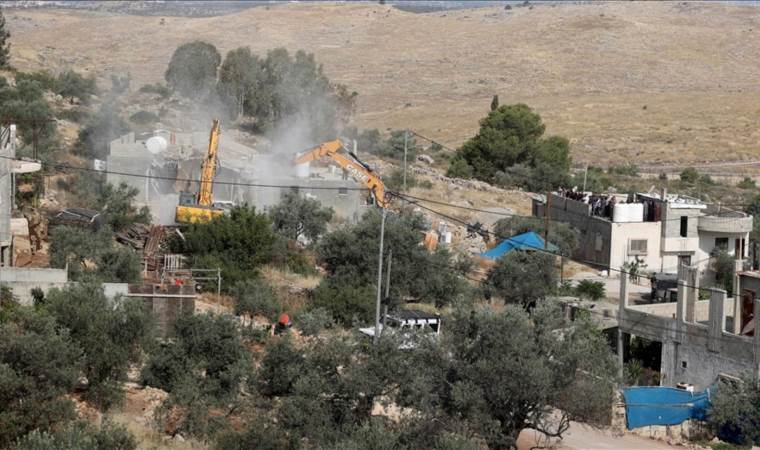Russian Defense Minister: Special military operation put an end to Western military dominance
Army 'debunked many myths about superiority of Western military standards,' Shoygu says at Moscow security conference

Russian Defense Minister Sergey Shoygu on Tuesday said Moscow's "special military operation" in Ukraine ended Western dominance in the military domain, thus decreasing the ability to force its interests upon others.
Speaking at the Moscow Conference on International Security (MCIS) in the Russian capital, Shoygu said the move has increased the role of Asian, African, and Latin American countries in the international arena.
Shoygu said the West made "unprecedented" efforts to disrupt the conference but failed, and the participants continue promoting the establishment of the multipolar world.
"Today, Russia is opposed not by the armed forces of Ukraine, but by the entire collective West, which has recently been joined by individual states of the Asia-Pacific region," meaning Australia and New Zealand.
The minister argued that the Russian army "debunked many myths about the superiority of Western military standards," showing that the use of Western weapons, and NATO's methods of planning operations, training, and managing troops does not always ensure victory on the battlefield.
Despite the extensive assistance of the West, Ukraine failed to achieve the desired results, and the long-awaited counteroffensive did not bring the expected outcome, he said, adding: "Preliminary results of the fighting show Ukraine's military resource is almost exhausted."
According to his assessment, when the US urges the allies to supply weapons to Ukraine, it is "clearing the market for the American military industry production."
"For the new weapons, the partners will have to pay the US a lot of money and agree to limit sovereignty in the security sphere. An example is Europe, where defense policy is completely subordinated to Washington's interests," he said.
"SPECIAL MILITARY OPERATION A CHALLENGE FOR RUSSIAN ARMY''
The defense minister admitted that for the Russian army its "special military operation," which began last February, is "a serious challenge" as it has to undertake the toughest tasks in the shortest time.
Some issues are complicated by Western sanctions, it was not easy to amplify the production of military equipment and ammunition, he said.
But, Shoygu added, Russia acquired a lot of know-how on Western military equipment and weapons captured in Ukraine.
The Russian military chiefs also carefully study and analyze Western methods of training and conducting hostilities, he said.
Shoygu said violation of international humanitarian norms in the course of hostilities has become "Ukraine's feature."
"Civilians are used as a human shield, the armed forces of Ukraine intensify shelling of residential areas in Donetsk and other settlements beyond Kyiv's control, as well as the Russian border regions," he said.
"We record and convey information about incidents to the UN structures and the International Committee of the Red Cross on a daily basis. Unfortunately, there is no reaction. International officials often claim that they allegedly do not have any information about Ukraine's non-compliance with humanitarian law."
GRAIN DEAL AND CLUSTER BOMBS
Shoygu also accused Kyiv of "particular cynicism" in the implementation of the Black Sea Grain Initiative, which it "used to cover accumulation of weapons and ammunition" in the ports of the Black Sea, including Odesa.
The minister claimed that the Ukrainian military produced drones and marine-guided vehicles, used to strike Russian facilities, near the granaries.
Shoygu pointed out that international humanitarian organizations ignored Kyiv's actions, as well as the deliveries of controversial cluster bombs by the US.
"Earlier, American representatives repeatedly said the use of cluster munitions was a war crime. Today, Washington and its accomplices are committing this crime in Ukraine. As expected, there is no condemnation from humanitarian organizations," he said.
The official claimed that Russia may change its position on the use of cluster bombs, which it has but has not used because of humanitarian concerns.
WEST WILL CONTINUE ATTEMPTS TO PROVOKE CONFLICTS
The Russian military chief argued that fearing the end of the unipolar world, the West intensified its activities in Asia, Africa, and Latin America.
"The West is escalating the situation around Taiwan," he said, adding that he personally saw the achievements of North Korea in ensuring its security during his visit to the country last month.
"Neither international isolation nor economic sanctions could stop the development of the Republic. The country has achieved impressive success in solving difficult social and defense tasks," he added.
Shoygu said there was a possibility that the West will try to provoke new conflicts in the Middle East, Latin America, and Central Asia, including through Afghanistan.
The Arctic region was also turned into an area of confrontation, which strengthened after Finland's accession into NATO, he said.
"We are closely monitoring the changes that are taking place. We will respond adequately to security threats and attempts at provocations, including by strengthening the security of the Union State of Russia and Belarus. No one should have any illusions that against the background of a 'special military operation,' it is possible to damage Russian interests," he warned.
He said Western activities on the African continent are primarily aimed at preserving the ability to pump out natural resources of former colonies, adding that its military assistance does not help reduce the activity of armed groups.
Most Read News
-
 No Future Without Industry: A Call for Production-Orient
No Future Without Industry: A Call for Production-Orient
-
 Israel’s Ben-Gvir ends US visit amid pro-Palestine prote
Israel’s Ben-Gvir ends US visit amid pro-Palestine prote
-
 Japan seeks collaboration to advance nuclear disarmament
Japan seeks collaboration to advance nuclear disarmament
-
 Major fire erupts at electrical substation in West Londo
Major fire erupts at electrical substation in West Londo
-
 Ukraine appoints new deputy defense ministers amid ongoi
Ukraine appoints new deputy defense ministers amid ongoi
-
 Malaysia urges all parties in Myanmar to continue ceasef
Malaysia urges all parties in Myanmar to continue ceasef
-
 German Social Democrats conclude key vote on coalition d
German Social Democrats conclude key vote on coalition d
-
 Canada's Liberal Party wins federal elections by over 43
Canada's Liberal Party wins federal elections by over 43
-
 At least 41 civilians killed, scores injured in RSF shel
At least 41 civilians killed, scores injured in RSF shel
-
 Israeli army arrests 22 Palestinians, demolishes 4 homes
Israeli army arrests 22 Palestinians, demolishes 4 homes
